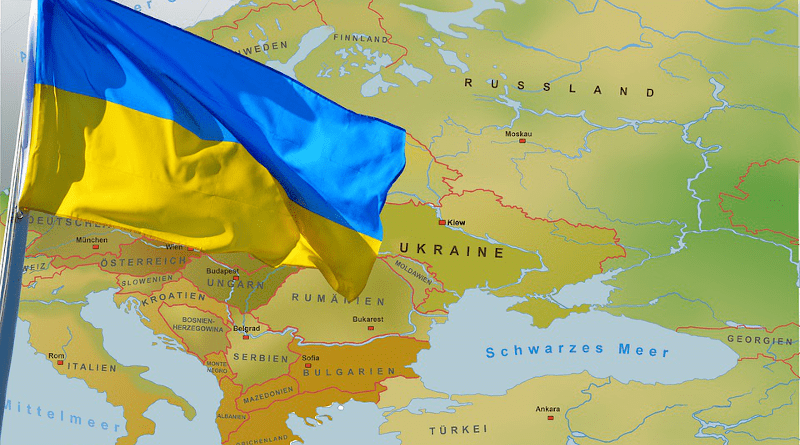Russia-Ukraine Whataboutism – Analysis
An August 17, 2009 article in Georgian Daily by Paul Goble (“Ukraine Has Nearly 3,000 Russian-Language Schools, But Russia Has None of Ukrainian-Language Schools“) was brought up in some recent discussions at Leos Tomicek’s blog Austere Insomniac. (The aforementioned discussions are under the posts of November 23 and December 5.)
The thoughts expressed in this excerpt from Goble’s article were specifically mentioned:
Despite Moscow’s frequent charges and complaints, Kyiv pays for the operation of nearly 3,000 Russian-language schools as well as other Russian-language institutions in Ukraine, a level of support especially striking given that Russia does not pay for the operation of even one Ukrainian language school on its territory.
And that absence of Russian support for Ukrainian-language schools not only violates the Russian constitution but also makes it harder for Ukrainian officials to justify continuing their backing of Russian-language schools while providing evidence for those Ukrainians who argue that Russia doesn’t respect Ukrainians and that Kyiv should pursue a more independent course.
****
The above excerpted comments are in line with remarks made by the late Roman Kupchinsky at an August 13, 2009 Washington DC area discussion, when Viktor Yushchenko was Ukrainian president. Goble and Kupchinsky appear to have engaged in a deflective whataboutism, which the likes of Edward Lucas (Kupchinsky’s friend) do not note, while making other whataboutism claims. (For clarity sake, whataboutism should not be confused with an appropriate comparison.) Goble’s article downplays as well as leaves out altogether several key subject related variables.
The popularity of Russian language use in Ukraine is significantly greater than the comparatively limited use of Ukrainian in Russia. There is omission of the specificity to the treatment of the Russian language in Ukraine. A primary criticism concerns the closing of Ukrainian government funded Russian language public schools, which became evident during the presidential administrations of Leonid Kuchma and Viktor Yushchenko.
On the stated language ratio of Russian schools in Ukraine (around 3,000) versus Ukrainian schools in Russia (none): this situation seems to concern Ukrainian and Russian government funded and registered public schools – as opposed to private language instruction.
The last Russian census of 2002 puts the percentage of ethnic Ukrainians in Russia at 2%. Since 2002, the ethnic Ukrainian population in Russia is not believed to have risen over 10%. Another factor to consider is the actual number of individuals in Russia who want government funded Ukrainian language public schools. These factors limit the chance of such schools.
Offhand, I suspect that most countries with an ethnic group of around 10% or less do not have 100% government funded and officially registered public schools which primarily communicate in the language of the given ethnic group. On the other hand, there are global precedents giving credence to the thought that Russian can be reasonably given consideration as an official language in Ukraine.
Goble’s article uncritically cites an interpretation of the Russian constitution which supports the notion that every Russian citizen has the right to be educated in the language of their choice. The matter of private instruction covering this particular is not addressed.


“whataboutism should not be confused with an appropriate comparison”.
Beautifully simple – I wish I had used a line like that. Nice post, very well-written.